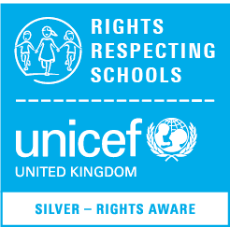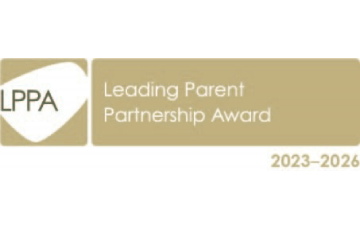E-Safety Advice For Parents
We understand how important technology is in today's world but it is also important to keep our children educated, safe and confident when online.
Here is some advice and resources for how to support our children in keeping safe and confident when using the internet.

Dear Parent/Carer,
Online safety is an important part of keeping children safe at Cavendish Community Primary School. Online Safety is taught to all pupils through our PSHE and computing curriculum, which empowers children to understand and be aware of how they can stay safe and behave appropriately online but we can only be successful in keeping children safe online if we work with you.
Listen & Talk
- Take an active interest in your child’s online life and talk with them about how they use technology.
- Talk to your child about safe and appropriate online behaviour.
- Discuss with them how they will keep themselves safe and make sure they know:
- How to block and report other users and content
- To speak to a trusted adult if they see anything or something happens online that makes them feel worried, upset or uncomfortable
Functionality
Make sure that you understand how the app works so you can decide if you are happy for your child to use it. You may even wish to set up an account yourself first.
Consider:
-
- Does it allow video chat or the sharing of images?
- Does it allow user to communicate with ‘random’ strangers?
- Does it allow anonymous chat?
- Does it allow in-app purchases?
- Can you restrict access to the content that your child shares?
- How will your child’s personal data be used by the app?
Age Restrictions
- You can usually find age restrictions within the apps terms and conditions.
- The age limit for many popular social networking sites is thirteen. This is due to the Children's Online Privacy Protection Act of 1998 (COPPA). The age limit is not based on suitability of content and instead applies to any website, app or online service which collects, stores or uses children’s personal information. Some apps will have age limits of 18+ as they are exclusively designed for use by adults.
- If children use apps that are aimed at an older age group then this may leave them vulnerable to being exposed to unsuitable content (including advertising), as well as being contacted by strangers.
Safety
- Many popular apps will have ‘help’ and ‘safety’ sections, either within the app itself or via its website. Some apps will even have content specifically designed for parents and carers.
- Does the app have any privacy settings? If so then help your child to apply them appropriately – for example is it possible to set the app so that only trusted friends can see information they post?
- Explore the block and report features. Can your child block or report concerning users or inappropriate behaviour?
- If the app doesn’t have safety or help sections or doesn’t provide the ability to report and block then you may wish to consider if it is safe for your child to use.
Boundaries
- Talk to your child about safe and appropriate online behaviour.
- Consider setting up a family agreement regarding how their internet use will be supervised and how long they can spend online.
- Apply appropriate parental controls to all devices
- Discuss your expectations about the types of content and information they should share online, rules relating to adding friends and meeting people in real life.
- Do they understand:
-
- That content posted online should never be considered to be private and may be copied and shared?
- That they should behave online the same as they would in “the real world” and be kind?
- How to be secure online such as by using safe and strong passwords.

Resources
A parents guide to understanding technology
http://www.saferinternet.org.uk/advice-and-resources/a-parents-guide
How to use the Internet safely: (A guide for parents)
http://www.wisekids.org.uk/parents_internetsafetyguidelines.htm
Digital Parenting Pro
Vodafone have created a fantastic resource for parents including information, YouTube videos, and an interactive resource providing information about parental controls and safety settings. https://www.vodafone.co.uk/newscentre/smart-living/digital-parenting/digital-parenting-pro/
Online safety for parents
http://www.bbc.co.uk/webwise/topics/safety-and-privacy/online-safety-for-parents
Consider setting up a family agreement regarding how their internet use will be supervised and how long they can spend online. Resources to help can be found at www.childnet.com and www.nspcc.org.uk/preventing-abuse/keeping-children-safe/share-aware/
Apply appropriate parental controls to all devices: www.saferinternet.org.uk and www.internetmatters.org
www.saferinternet.org.uk has some useful parent guides which highlight safety tools on popular devices, and signpost to report mechanisms.
Get advice for creating safe and strong passwords at www.getsafeonline.org.uk
Does your child know how to get suppport and advice for using the internet safely?
Websites such as ChildLine and CEOP aoffer advice and further resources. childline.org.uk and www.thinkuknow.co.uk



You can report online abuse to CEOP by visiting www.ceop.police.uk and using the “Click CEOP” reporting button.






